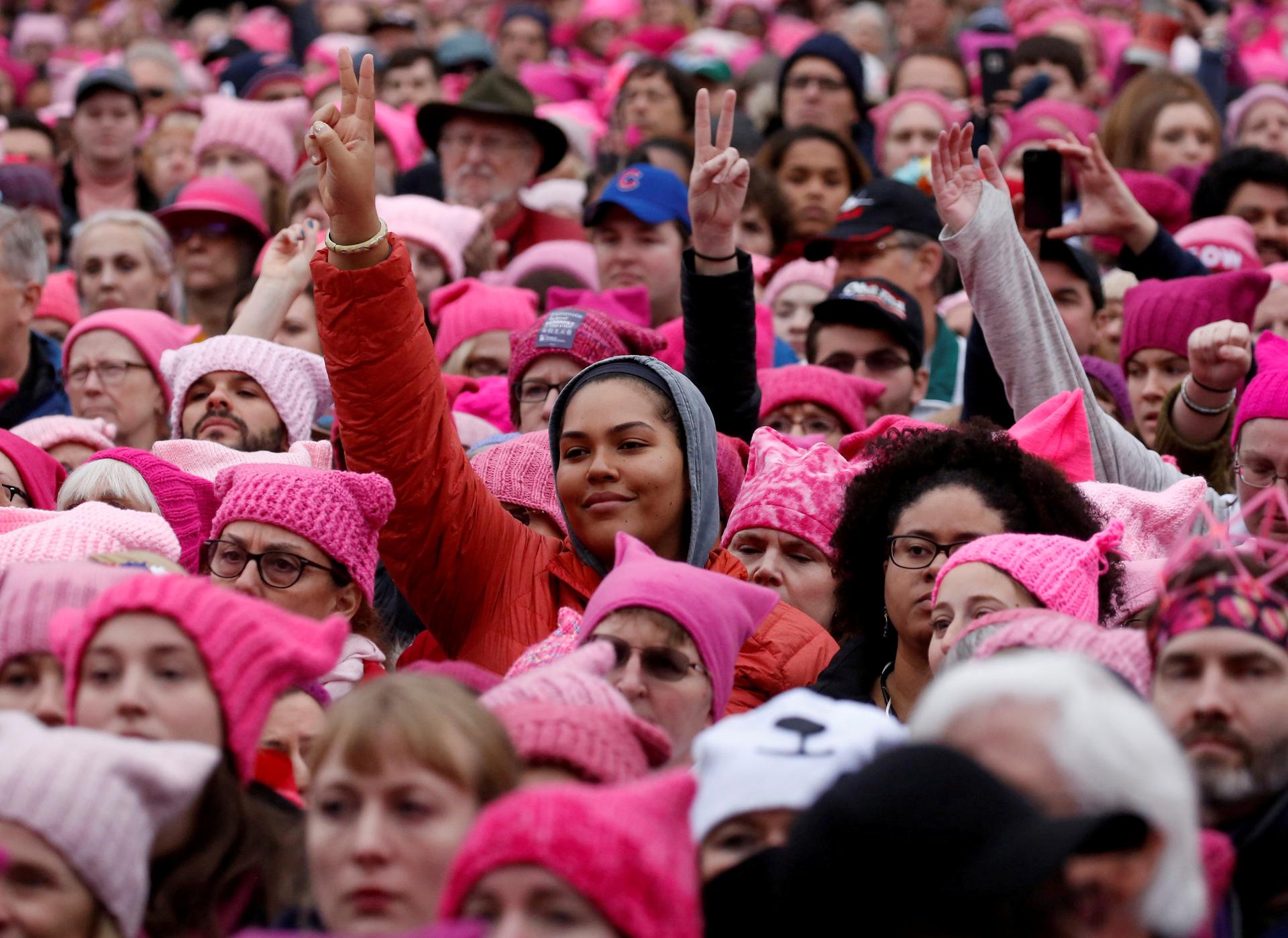These women are upending the media landscape
People gather for the Women's March in Washington, DC, Jan. 21, 2017.
“Grab them by the pussy.”
If ever there was a way to gain attention during a presidential campaign, that would be it.
I remember clearly when these words surfaced. They were from a 2005 conversation between Donald Trump and former “Access Hollywood” host, Billy Bush. But what made those so attention-grabbing was that they became public while Donald Trump was the Republican nominee for president of the United States.
But the language ignited something beyond politics.
It was the start of a culture shift in Hollywood, the media and beyond. Months after the words became public, Trump was sworn in as the 45th president of the United States on Jan. 20, 2017. A day later, millions of women in the US and around the world took to the streets in protest.
While the Women’s March appeared to galvanize opposition against the new president, it also revealed that many women of color didn’t feel their concerns or issues were being heard by the organizers. Yes — the march was a way to speak against a potential erosion of women’s rights, like abortion rights, but many women of color felt that there were other issues that impacted them just as much as sexism.
Related: A mother and daughter who marched are ‘tentatively hopeful’ about feminist activism under Trump
Like, for example, being hit twice by the pay gap. Or being traumatized by reports of the killing of black and brown people by police officers. And the infamous immigration ban.
For all these reasons, the march created emotional conflict for many women of color. This tension reflected a schism that has long existed in the public conversation about women’s rights, as Grace Hong, a professor at the University of California, Los Angeles, said during a 2017 interview with NPR.
"Historically, the category 'woman' has, implicitly, meant white women." The call to put womanhood above all else, Hong says, is based on the idea that "critique and dissent undermine a unity that's based on the lowest common denominator: Find the one thing everyone has in common."
Add to all of this the elephant in the room: Polls revealed that 53 percent of white women voted for Donald Trump, while 94 percent of black women and 68 percent of Hispanic or Latino women voted for Hillary Clinton.
It was against this backdrop that I came up with the idea of “The Media Disruptors.” Like many others, I had in-depth conversations about how the march could unite the voices of so many. I also realized these conversations weren’t being depicted in the media. There was reporting on the tension, but very little analysis.
As a broadcaster who has worked in newsrooms in the UK and the US, I have met many women who challenged diverse audiences to think differently about gender and race. They are filmmakers, visual artists, academics and journalists who create the shows we listen to and watch.
Many of these women have been overlooked by mainstream media. So, I decided to have them tell us — in their own words — how they are disrupting established narratives. In these interviews you’ll learn how these women have challenged their audiences to learn about new places, have revealed unwritten truths about historical events and have even interviewed men who hated them because of their skin color.
Little did I know that months after embarking on this project, women’s voices would force the world to pay attention to gender discrimination, harassment and abuse in the workplace and beyond. I’m grateful and thankful to Tarana Burke, Oprah and the organizers of the Women’s March and so many other women for the work they did to force us all to have an honest conversation about discrimination in all its forms.
Check back here over the next few weeks to read interviews with:
Amma Asante (Feb. 15)
Bhakti Shringapure (Feb. 22)
Ilia Calderon (March 1)
Joanelle Romero (March 8)
Nancy Wang Yuen (March 15)
Christabel Nsiah-Buadi is the creator and Editor of “The Media Disruptors” and a public media producer. She also writes about the media, culture and politics. You can follow her on Twitter: @msama.
Our coverage reaches millions each week, but only a small fraction of listeners contribute to sustain our program. We still need 224 more people to donate $100 or $10/monthly to unlock our $67,000 match. Will you help us get there today?
